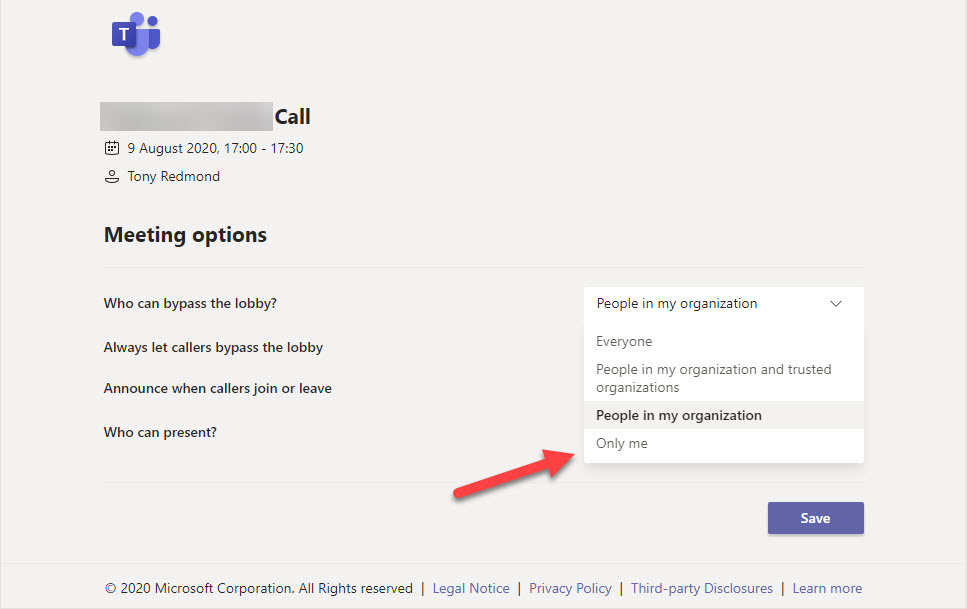A setting in the Teams meeting policy controls whether users can access the meeting chat in meetings hosted by non-trusted external tenants. By default, the setting is On, meaning that users can participate in chat for any meeting they join in any tenant. If you have concerns about this aspect of meetings, turn the setting Off and define trusted tenants.
A new setting in Teams meeting policies allows administrators to control the languages used to generate Teams meeting invitations. The policy setting takes precedence over the language used by the user who creates a new Teams meeting. You can select up to two languages.
Microsoft has updated the Teams meeting policy to restrict automatic meeting joining (aka lobby bypass) to organizers. This is likely to be most popular with schools, but enterprirse will see value in being able to force participants to pass through the meeting lobby before joining in some circumstances. And remember, a meeting organizer can always change the settings before the meeting begins.
A new setting available in Teams meeting policies allows Office 365 tenants to have per-user control over who can present at meetings. You might want to do this to stop guests presenting. or to limit some people from inviting others to present. I’m not quite sure what the use case is, but no doubt some people will find great value in the new setting.
Microsoft has updated the Teams meeting policy to introduce a new control over video filters in Teams meetings. The VideoFiltersMode setting controls if people can use background blur and background effects, including the ability to upload custom images. A client update is needed to respect the new setting. It will come at the end of May.
Microsoft is updating the Teams default meeting policy to enforce lobby entry for external users. Sounds good, but what does this mean? This post explains what happens and how Microsoft is able to update the default meeting policy for many tenants while not affecting the tenants who have customized their default meeting policy.
The new Teams Calendar app gets a new feature called Meet Now to create on-demand or ad-hoc meetings that don’t need to be scheduled in anyone’s calendar. There doesn’t seem to be any reason not to allow users to use Meet Now, but if you need to block the feature, you can edit a Teams meeting policy and assign it to the unfortunate users.






